Projects
Technologies for «Smart Energy»
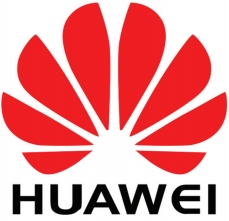
On August 19-20 of this year, Almaty hosted the International Summit on Innovative ICT-solutions that help creating the smart energy-"Innovative ICT Enables Smart Energy-Huawei Global Energy Summit-2015".
The Summit was attended by more than 200 participants, including the representatives of the KAZENERGY Association, theGeneral Consulate of China in Almaty, customers of the energy industries from the countries of Central Asia, Middle East, North Africa and China, partners of global importance, such as CNPC Richfit, China Petroleum Pipeline Engineering Corporation (CPPE), Honeywell, ABB, SAP, leading analysts known international agency Forrest, as well as the experts and media representatives, working in the international oil and gas industry. The participants discussed the concepts of information and communication technologies and solutions in the energy sector in order to increase the efficiency of production, introduction of the principles of scientific management and security work.
Today, the energy sector enterprises in Kazakhstan face serious challenges of digital transformation. Ji Xiang, President of the energy sector within the business group of Huawei Enterprise BG presented a report on "Innovative ICT development of for “smart energy" at the Summit. In particular, he stressed that: "Innovative ICT solutions will be the impetus for the progressive development of the oil and gas industry. By 2025, 100 billion sensors will facilitate the sharing of data among various sectors of the global industry. The oil and gas industry will implement the smart device applications at higher level, as well as the methods for the big data storage and analysis. Huawei company helps transforming the oil and gas industry through continuous development of innovative solutions for the optimization of technological processes, it offers an innovative strategy of "cloud-pipe-device" and uses the revolutionary ICT technologies and solutions (for example, cloud DATA CENTERS and Big data, adaptive network and LTE, gateway, Internet of things, and the operating system open source architecture of the Internet of things LiteOS) in all the sectors of the oil and gas industry.
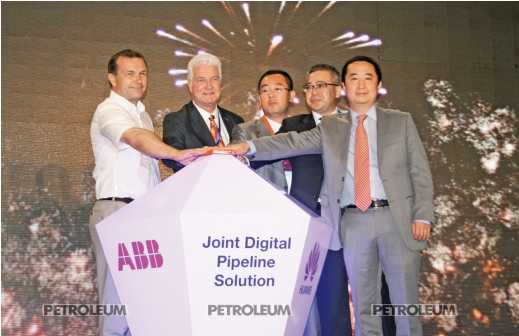
The company was founded in 1988 in China, with its headquarters based in Shenzhen. Presently, it operates 23 regional representations worldwide , having opened more than 100 branches, 16 research centres, 36 training centres, and the number of employees exceeded 170000 people. Huawei Technologies is a supplier of telecommunications equipment in more than 170 countries around the world, ranking among the leading suppliers of telecom solutions; their sales contracts in 2014 exceeded 46.5 billion USD.
Huawei's representation in Kazakhstan was established in 1999, and the subsidiary company- Huawei-Almaty LLP was established with 80 per cent of local resources in April 2007 in Almaty city. Huawei also created the after-sales service centre, aiming at the timely and effective maintenance and advice for the local customers.
Thanks to many years of efforts, Huawei was able to massively introduce a wide range of equipment, including equipment switching networks, NGN, optical access networks, mobile, broadband networks, data transmission networks, etc in the market of Kazakhstan. Huge technical power and excellent reputation allowed Huawei to become the main supplier and strategic partner for the operators of Kazakhstan, such as Kazakhtelecom, Altel, Kar-tel, MTC and others.
In total, Huawei provided to Kazakhstan more than 200 jobs, organized training for the trainees from the Government sector and operators, it has prepared more than 200 skilled manpower in the field of communications. On the one hand, developing the Kazakhstani market by Huawei, it destroyed the long-standing monopoly of the Western manufacturers, and through the competitive business conditions and improving the quality of after-sales service, Huawei has helped the operators to save huge amounts of money for the purchase of equipment and its maintenance. On the other hand, providing the operators with advanced technical solutions, upgraded the entire communications industry in Kazakhstan. Generous humanitarian assistance to Kazakhstan also strengthened its reputation of Huawei as the enterprise with high social responsibility.
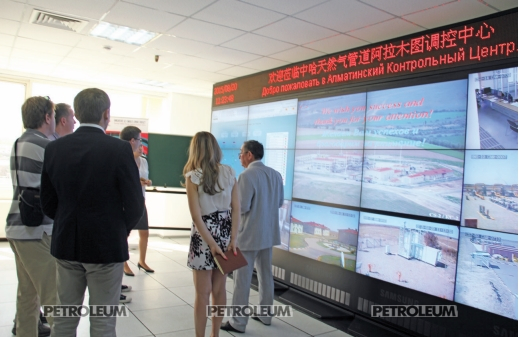
Today, Huawei successfully serves 12 companies, listed in the top 20 of the largest energy companies in the world. In Norway, Huawei has deployed the first LTE network at the offshore site for the oil industry needs. As a result, it was possible to improve the efficiency of production by 30%, and the labour costs reduced by 20%. In China, Huawei has helped CNPC BGP to create the largest professional data management center, ensuring the bandwidth of 300 Mbit/s and T-level data storage system. This is equivalent to the volume of all information, stored in the British Museum. In the Middle East Huawei company revolutionized the communication system of Saudi Aramco, the world's largest oil company. As a result, the joint digital-to-analog mobile and fixed network was created through which the customers can enhance the production efficiency.
“These technologies can drastically change the oil and gas industry in the future . New methods of successful business and guarantees of high production efficiency will be determined,-said Bobby Cameron, Vice President of Forrest, during his speech at the Forum. "Today, the number of enterprises, operating in the area of oil exploration and production, as well as the processing, storage, transportation and marketing, face many difficulties, for example, there are often the security problems at the pipelines with the inability to quickly analyze and share 3-d exploration data in real-time. The oil and gas companies are looking for the ways to maximize profitability through rapid analysis and exchange of data for exploration in real-time, improve operational efficiency and increasing production technologies.
Zhang Zhiling, Vice President of IT Department, Sinopec Group Corporation noted out that the fluctuations in the global oil prices might cause serious problems in the oil industry. And if oil companies want to survive in the face of falling prices, they had no choice but to constantly innovate, reducing costs and improving their efficiency. Informatization of oil industry will
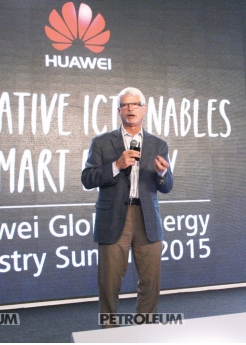
be focused on innovations, such as “Internet of things”, IOT, Big data, cloud computing, mobility and coordination, forcing the energy industry to move constantly from digital to smart format".
"Safety and efficacy should go side by side. It is very important that the oil companies would not only optimize the processes and principles of collaboration, but they also shall take care of the safety and environmental protection. We need to use the video surveillance systems in real time and the remote methods of cooperation to ensure the highest possible level of safety,"-said Phil Millett, principal consultant of Honeywell.
Transportation 85% of India's crude oil production and 70% of natural gas around the world is ensured through the pipelines. Length of pipelines has typically thousands of miles. Therefore, it is extremely urgent to ensure reliable, secure and efficient operation of such long pipelines. CNPC Corporation and Huawei, CPPE Richfit, ABB and Honeywell have submitted joint universal, reliable, safe and effective solution at the Summit, which combines consultancy and design work, ICT-infrastructure, automation of production, service applications and services.
Mike Heng, Director of Corporate Department, Huawei in Central Asia and the Caucasus region, noticed: "Central Asia occupies an important place in the global oil and gas industry, being the third region in the world in terms of oil reserves. Huawei provides services for the Central Asian countries from 1997. Being focused on creation and development of revolutionary communication technologies and products in Central Asia, Huawei provides telecom operators, businesses and ordinary consumers with competitive integrated ICT solutions and services, helping clients to achieve success in the digital community. Huawei have many clients from the oil and gas industry, such as Asian gas pipeline LLP, Beineu-Shymkent, Petrokazakhstan, KazMunaiGas (KMG), JV Asia Trans Gas, Turkmenistan Amudarya, CIK and Sinopec Kazakhstan.
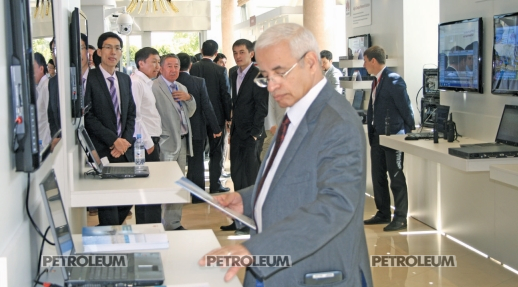
The Huawei decisions for the digital pipeline are applied at the pipelines in Central Asia with a total length of 4623 kilometers, including the world's first digital pipeline, as well as the world's longest natural gas pipeline-Kazakhstan-China-AB line (AGP AB line). Thanks to the experience and professionalism in the field of information and communications, Huawei helps the clients from Central Asian countries to optimize the efficiency of resource production, reducing energy consumption and ensuring the security of work and complete digital conversion".
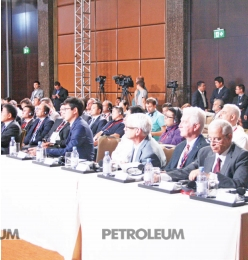
Huawei company has also demonstrated a series of solutions for creation of "smart" energy, including digital pipeline, technologies for digital production, cloud-based datacenter, mobile office and others. These solutions cover all the segments of the oil industry, such as exploration, production, transportation and information management.
On next day of the Summit, the partners and clients in the oil and gas sector, as well as the media representatives visited the booth in the Almaty-based Huawei AGP & Control Center (ACC), located in the main office of Asian Gas Pipeline LLP in the business district of the city. ACC is a common control center for AGP-AB and the future line of AGP-C pipeline. ACC Centre is in charge of global monitoring of the pipeline, passing through the territory of Kazakhstan and transporting the natural gas through the regions of Central Asia. The visitors could see a working SCADA interfaces, made from the satellite images and a video image of the station, demonstration of on -site technological operations, as well as to discuss new directions for development of digital pipeline.
Published full article



